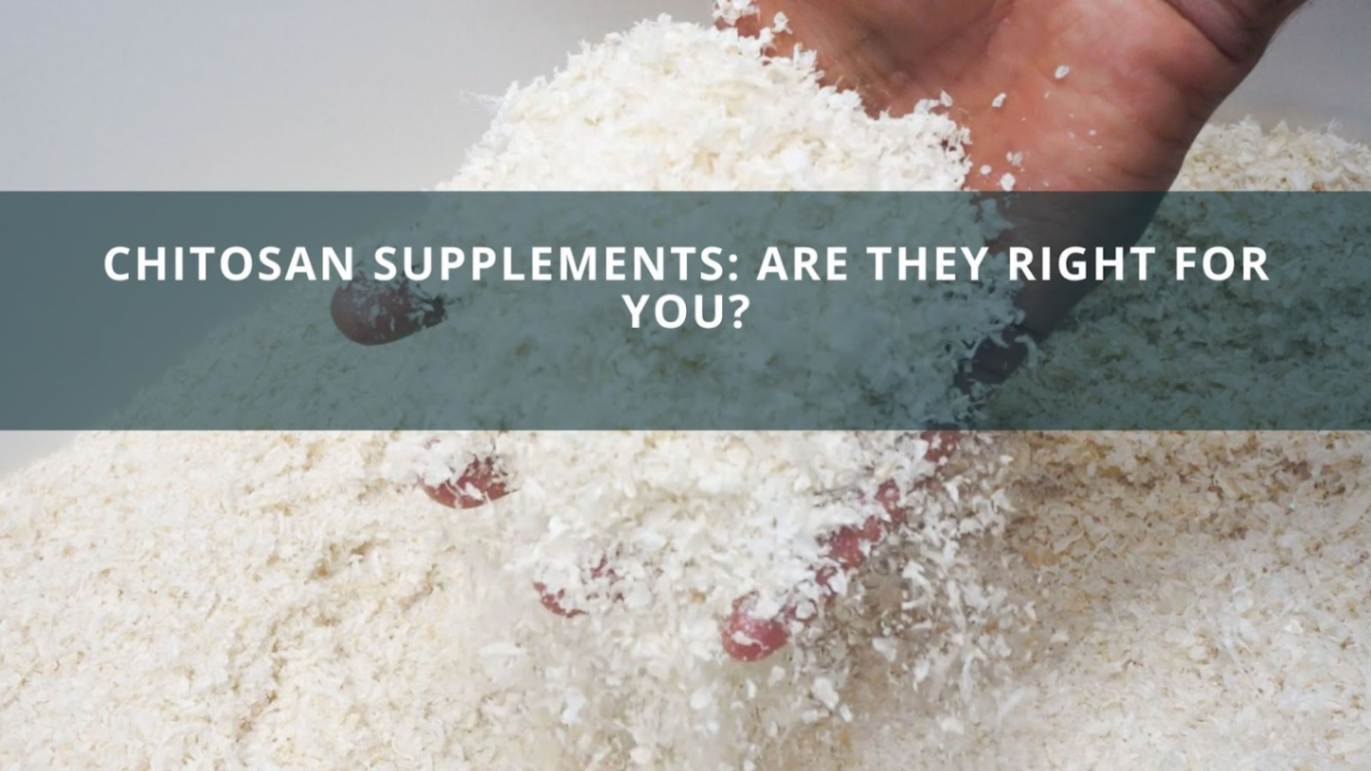Chitosan supplements have recently gained significant popularity within the expansive health and wellness industry. These supplements are often marketed as natural, eco-friendly options for individuals seeking to improve their well-being.
However, when looking to buy chitosan powder the surge in their use underscores the importance of a thorough understanding of their safety and potential side effects.
What Is Chitosan?
Chitosan is a natural polymer derived from chitin, a compound found in the shells of crustaceans like shrimp and crabs. It is renowned for its remarkable properties, such as being biodegradable, non-toxic, and biocompatible. These qualities make it a sought-after ingredient for various applications, including supplements.
In the process of creating chitosan supplements, chitin undergoes a rigorous transformation. It’s deacetylated, meaning that the acetyl groups are removed, resulting in chitosan. This processed form is then often further refined and dried into a powder or encapsulated into capsules, making it easier for consumers to incorporate into their daily routines.
Understanding this fundamental transformation from chitin to chitosan is crucial in comprehending the potential health benefits and considerations associated with chitosan supplements. Moreover, it paves the way for a more informed evaluation of their role in personal health and wellness.
The Appeal of Chitosan Supplements
Chitosan supplements have captured the attention of health-conscious individuals due to a range of perceived benefits, as well as their eco-friendly and natural origins:
Weight Management:
Chitosan supplements are often hailed as weight loss aids. This is primarily attributed to chitosan’s unique ability to bind with dietary fat in the digestive tract. When ingested, chitosan may trap fat molecules, preventing their absorption and subsequent storage in the body. This concept has sparked interest among those seeking to shed excess pounds or maintain a healthy weight.
Cholesterol Reduction:
Another benefit of chitosan supplements is their potential to reduce cholesterol levels. Chitosan is believed to bind to cholesterol in the digestive system, thereby aiding its elimination from the body. For individuals concerned about heart health, this effect has made chitosan an appealing dietary addition.
Eco-Friendliness:
Chitosan’s eco-friendliness is a significant factor in its appeal. As a natural derivative of chitin, which is abundant in the shells of crustaceans like shrimp and crabs, chitosan is considered a sustainable resource. This aligns with the growing global interest in environmentally conscious products and supplements.
Natural Origin:
The natural origin of chitosan further adds to its allure. Many people prefer supplements derived from natural sources, believing them to be gentler on the body and less likely to cause adverse effects compared to synthetic alternatives.
Safety Concerns and Potential Side Effects
While chitosan supplements offer potential benefits, it’s essential to recognize that they may not be suitable for everyone. Safety considerations and potential side effects must be taken into account:
- Chitosan, in its pure form, is generally safe for consumption. It has been used in various applications, including wound dressings and food preservation, with a low incidence of adverse effects.
- Despite its overall safety, some considerations should be kept in mind. Chitosan’s ability to bind with fat means that it may also interfere with the absorption of fat-soluble vitamins, such as vitamins A, D, E, and K. Individuals taking fat-soluble vitamin supplements should be cautious and consult a healthcare provider.
- Like many supplements, chitosan can cause side effects in some individuals. These may include gastrointestinal symptoms such as nausea, gas, and diarrhea. It’s worth noting that these side effects are relatively rare and tend to be mild when they do occur.
- The most crucial safety aspect is consulting with a healthcare professional before incorporating chitosan supplements into your daily regimen. This is especially important for individuals with pre-existing medical conditions, those taking medications, or pregnant and breastfeeding women.
A healthcare provider can offer personalized advice and help assess whether chitosan is appropriate for you.
Who Should Avoid Chitosan Supplements?
While chitosan is generally considered safe, specific groups of individuals should exercise caution or avoid these supplements altogether:
- Shellfish Allergy: Individuals with a known allergy to shellfish, such as shrimp or crab, should steer clear of chitosan supplements. Chitosan is derived from shellfish, and there is a risk of cross-contamination or allergic reactions.
- Pregnant and Breastfeeding Women: Chitosan’s safety during pregnancy and breastfeeding has not been thoroughly studied. Due to potential risks and uncertainties, pregnant and breastfeeding women should avoid chitosan supplements unless otherwise directed by a healthcare professional.
- Medication Interactions: Chitosan’s fat-binding properties can potentially interfere with the absorption of medications. Individuals taking prescription medications, especially those with critical dosing requirements, should consult their healthcare providers before using chitosan supplements.
- Gastrointestinal Sensitivity: Individuals with a history of gastrointestinal sensitivity or conditions such as irritable bowel syndrome (IBS) should use chitosan supplements with caution. The supplement’s potential to cause gastrointestinal side effects may exacerbate existing symptoms.
Choosing the Right Chitosan Supplement
When considering chitosan supplements, it’s essential to make informed choices to ensure you’re getting a product that aligns with your health goals and needs:
Purity:
Look for chitosan with high purity levels. The purity of chitosan can vary between products, and higher purity typically indicates a more concentrated and effective supplement. Check the product label for information on purity or consult the manufacturer’s website.
Dosage:
Pay attention to the recommended dosage on the product label. Dosage recommendations can vary depending on the brand and the specific formulation of the supplement. Ensure that the dosage aligns with your intended use and is consistent with any recommendations from your healthcare provider.
Form:
Chitosan supplements come in various forms, including powder, capsules, tablets, and liquids. Choose the form that is most convenient and comfortable for you to take. Some people prefer capsules for ease of consumption, while others may prefer powders for versatility in dosing.
Product Labels:
Carefully read product labels to understand the ingredients and any potential additives or fillers. Look for chitosan supplements that have minimal additional ingredients, as this can enhance the purity of the product.
Quality Certifications:
Seek out chitosan supplements that have undergone third-party testing and have quality certifications. Certifications from organizations like the U.S. Pharmacopeia (USP) or NSF International can provide assurance of product quality and safety.
Interactions with Medications
Chitosan supplements, like any dietary supplements, have the potential to interact with certain medications. It’s crucial to be aware of these interactions and take precautions:
Medication Interactions:
Chitosan’s ability to bind with dietary fat means it may also interfere with the absorption of fat-soluble medications. This can affect the effectiveness of medications such as birth control pills, certain lipid-lowering drugs, and fat-soluble vitamins. Consult your healthcare provider if you are taking any of these medications.
Disclosure to Healthcare Provider:
It’s essential to disclose your use of chitosan supplements to your healthcare provider. They can assess the potential for interactions with your current medications and provide guidance on adjusting your treatment plan if necessary. Open communication with your healthcare team is key to avoiding complications.
Chitosan’s Role in Weight Management
Chitosan’s role in weight management is often a significant motivation for individuals considering these supplements:
Fat-Binding Mechanism:
Chitosan’s primary mechanism in weight management is its ability to bind with dietary fat. When taken before meals, chitosan may capture fat molecules in the digestive tract, preventing their absorption. This can result in a reduction in the number of calories absorbed from fat.
Not a Magic Solution:
It’s important to clarify that chitosan is not a magic solution for weight loss. While it may help reduce fat absorption, it does not replace the need for a balanced diet and regular physical activity. Weight management is a multifaceted journey that involves many factors, including diet, exercise, and lifestyle choices.
Other Potential Health Benefits
Beyond weight management and cholesterol reduction, chitosan may offer additional health benefits:
Improved Gut Health:
Some research suggests that chitosan may have a positive impact on gut health by promoting the growth of beneficial gut bacteria. This potential benefit could have implications for digestive health and overall well-being.
Immune Support:
Chitosan’s immune-modulating properties have also been explored. It may have a role in supporting the immune system, although further research is needed to fully understand this aspect.
Conclusion
Choosing the right chitosan supplement involves considering factors like purity, dosage, form, and quality certifications.
In chitosan nanoparticles preparation it is important to be aware of the potential interactions with medications and consulting with healthcare providers is essential for safety.

